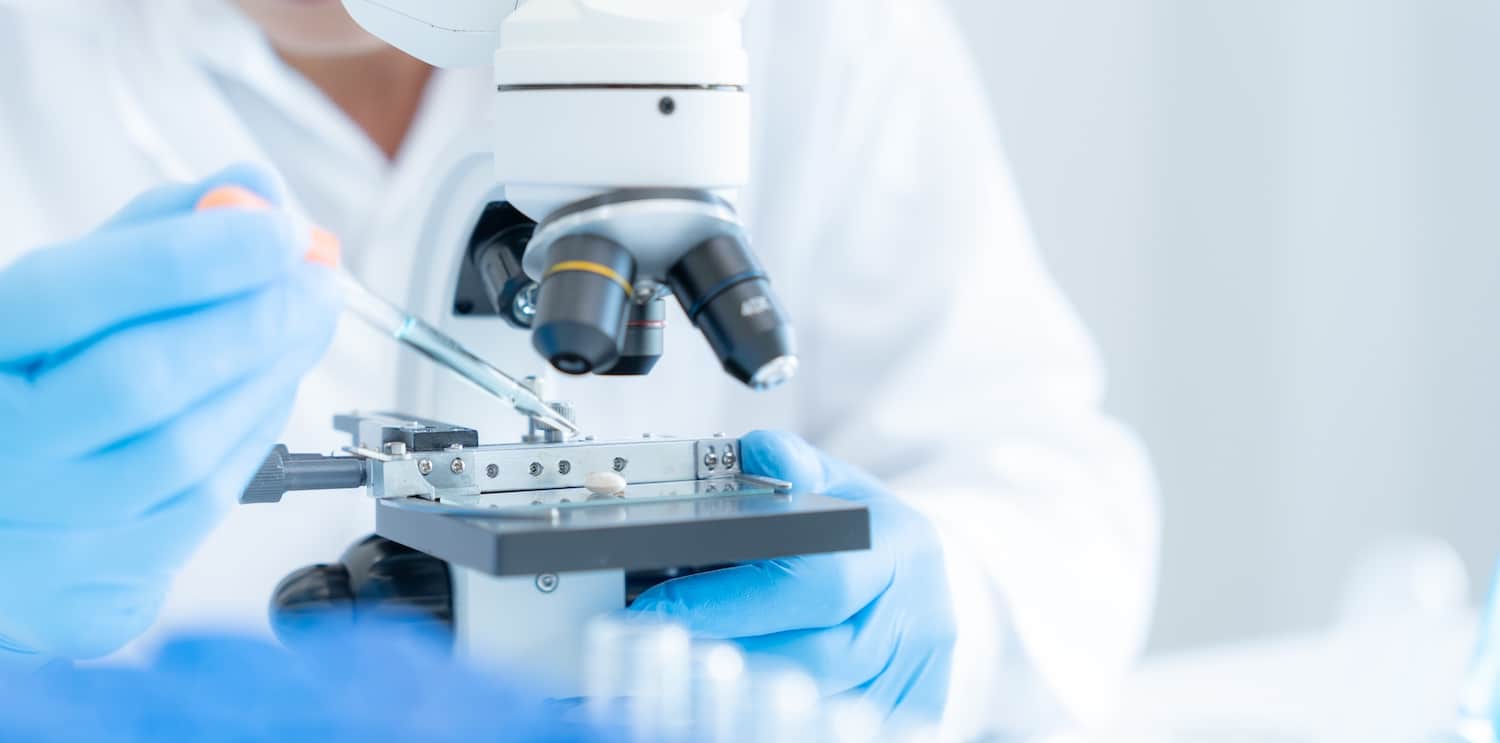What is BRCA1 and BRCA2? And Why Do They Matter?

A cancer diagnosis can be daunting, flooding your mind with questions about the future. Yet, your genetics may hold vital clues—not only about your cancer risk but also about how the disease might progress and respond to treatment. Understanding this genetic connection can empower you with more precise, personalized options for your care.
In the United States, 5% to 10% of breast cancers are linked to inherited gene changes from one or both parents. Identifying whether your cancer is related to a genetic variation can help your doctor refine your prognosis and tailor treatments to your specific cancer type.
This article explores the impact of the BRCA1 and BRCA2 genes on your cancer risk and how understanding a variant of these genes can shape your treatment options.
What is BRCA1 and BRCA2?
BRCA1 and BRCA2 are abbreviations for BReast CAncer genes 1 and 2 (also written as BRCA1/2). As the names suggest, these are the genes most commonly associated with hereditary breast cancer.
BRCA1 and BRCA2 are often mentioned together because they work alongside each other to repair damaged DNA and prevent the growth of cancerous cells. However, these genes are distinct, producing different proteins with unique functions during the DNA repair process.
You can inherit an altered copy of BRCA1, BRCA2, or both, but it’s also possible to inherit normal copies that may become altered over your lifetime due to aging or environmental factors.
Inheriting a harmful BRCA1 or BRCA2 variant is relatively rare, affecting about 0.2-0.3% of people (about 1 in 400). However, the rate is significantly higher in certain populations, such as the Ashkenazi Jewish community, where roughly 2.5% (or 1 in 40) carry a BRCA variant.
How do BRCA gene variants impact your cancer risk?
If you have a variant in one of your BRCA genes, your risk of developing certain cancers, like breast and ovarian cancer, increases. For example, the average woman in the United States has a 13% chance of developing breast cancer in her lifetime. However, women with a BRCA gene alteration face a much higher risk—over 60%.
When examining the impact of BRCA1 and BRCA2 on breast cancer, BRCA1 variants are more commonly linked to triple-negative breast cancer. Triple-negative breast cancer is a type of cancer that is typically more aggressive, harder to treat, and more likely to recur, potentially requiring different treatments, as hormone therapies are unlikely to be effective.
In contrast, BRCA2 gene alterations are more frequently associated with estrogen receptor-positive breast cancers. In this case, the hormone estrogen is promoting cancer cell growth. Hormone therapies that block estrogen from attaching to these receptors could help slow the cancer’s progression.
Understanding these distinctions allows your doctor to identify the most effective treatment options. What works for BRCA1-related breast cancer may not be as effective for someone with a BRCA2-related cancer.
Which cancers are associated with the BRCA1 and BRCA2 genes?
BRCA gene variants can increase the risk of several types of cancer in both men and women. Altered copies of the BRCA1 and BRCA2 genes are linked to a higher risk of the following cancers:
Breast Cancer
BRCA1/2 abnormalities not only raise your risk of an initial breast cancer diagnosis but may also increase the likelihood of contralateral breast cancer, which occurs when a second tumor develops in the opposite breast. This is known as second primary breast cancer.
If you carry a BRCA variant, there’s a 10-30% chance of developing contralateral breast cancer within 10 years of your original diagnosis, compared to a 5-10% risk for those without the variant.
BRCA gene variants are also linked to an increased risk of male breast cancer, particularly with BRCA2, which carries a 6% lifetime risk for men. In contrast, men with a BRCA1 variant have a 1% chance of developing breast cancer.
Ovarian cancer
Both BRCA1 and BRCA2 genes can impact your risk of developing ovarian cancer. BRCA1 is associated with a higher risk of ovarian cancer, as well as earlier onset, compared to BRCA2. Anywhere from 35-70% of women with a BRCA1 gene variant and 10-30% with an altered BRCA2 gene are at risk of developing ovarian cancer by the time they reach 70. In comparison, the general population has an ovarian cancer risk of less than 2%.
Pancreatic cancer
BRCA1/2 variants are also linked to an increased risk of pancreatic cancer. According to the National Cancer Institute, the chance of developing pancreatic cancer is up to 5% in those with a BRCA1 variant and 5-10% in people with a BRCA2 variant. This is in comparison to an average risk of 1.7% for the general population.
Prostate cancer
Other than skin cancer, prostate cancer is the most common cancer in men in the United States, affecting about 1 in 8. Men with variants of the BRCA1 gene have a higher risk of developing prostate cancer. Research suggests that 7-26% of men with changes in the BRCA1 gene and 19-61% of those with a BRCA2 variant could develop prostate cancer before they are 80.
Other cancers
Researchers are still studying potential links between BRCA variants and other cancers. For example, changes in the BRCA2 gene could be connected to an increased risk of melanoma. However, more research is needed to confirm this potential link, and the National Comprehensive Cancer Network does not yet have melanoma screening guidelines for those with BRCA2 variants.
BRCA1 and BRCA2 gene variants might also be associated with stomach cancer and uterine serous carcinoma, which is a rare form of endometrial cancer. More research is needed to better understand this possible link.
Who should consider genetic testing for a BRCA variant?
While genetic testing can be a valuable tool for understanding your cancer risk, genetic variants are rare, and not everyone needs to undergo testing. However, a genetic test might be appropriate if you:
- Have a family member with a BRCA1 or BRCA2 gene variant
- Have been diagnosed with breast cancer, particularly triple-negative or lobular breast cancer
- Have been diagnosed with male breast cancer or have a male relative with breast cancer
- Have Ashkenazi Jewish heritage
- Have a close family member who was diagnosed with breast cancer at age 50 or younger
- Have a personal or family history of cancers closely associated with BRCA1/2 variants, such as ovarian cancer, male breast cancer, pancreatic cancer, or metastatic or aggressive prostate cancer
- Have a known genetic variant within your family
Talk with your doctor about your family medical history to determine whether genetic testing might be appropriate for you.
Managing your breast cancer risk with a BRCA variant
Taking proactive steps to manage your health can significantly mitigate your cancer risk. Research suggests that lifestyle changes could prevent 40% of all cancer cases and nearly half of all cancer deaths. If you have an increased risk of breast cancer due to an inherited BRCA gene variant, there are additional measures you can take:
Screenings:
If you have a BRCA1 or BRCA2 gene variant, it’s recommended to begin breast cancer screening earlier than those with an average risk. The National Comprehensive Cancer Network recommends:
- Getting a clinical breast exam every 6-12 months starting at age 25
- Having a breast MRI annually beginning at age 25
- Starting annual mammograms at age 30. If an MRI isn’t available, annual mammograms should begin between ages 25-29.
Preventive Action:
For those with an inherited BRCA1/2 gene variant, medical options like risk-reducing medications or a preventive mastectomy may be available to lower breast cancer risk. Women at high risk for ovarian cancer might also consider removing their fallopian tubes and ovaries as a preventive measure. These decisions are highly personal, so it’s essential to discuss the best options with your healthcare team.
Genetic Testing:
If you’re diagnosed with cancer, genetic testing can provide valuable information about the genetic factors at play, including the presence of BRCA1 or BRCA2 variants. This information can guide your treatment options, determine your eligibility for clinical trials, and reveal your risk for developing a second cancer linked to these variants. Genetic testing can also help your family members understand their potential cancer risks.
Healthy Lifestyle:
Regular exercise, a balanced diet, maintaining a healthy weight, and avoiding alcohol and tobacco can all reduce your cancer risk. If you’ve been diagnosed with cancer, embracing a healthy lifestyle can support your treatment and reduce the likelihood of recurrence.
Learn more about your diagnosis with CancerVision
Variants in your BRCA1 and BRCA2 genes, though rare, can significantly increase your risk for multiple cancer types and impact your treatment approach.
If you’ve been diagnosed with breast cancer, genetic testing can be a crucial tool for tailoring your treatment plan and assessing your risk for other cancers. CancerVision is a comprehensive genetic test that analyzes over 99% of your genes to identify variants that may influence your treatment journey. Additionally, it includes access to genetic counseling at no extra cost.
The more information you have about your cancer, the better equipped you’ll be to make informed decisions for optimal outcomes. Take control of your health – order your CancerVision test.
References
- Ask Dr. Domchek: The differences between BRCA1 and BRCA2. (2019, January 31). Basser Center. https://www.basser.org/resources/ask-dr-domchek-differences-between-brca1-and-brca2
- BRCA Gene Mutations: Cancer risk and Genetic Testing fact sheet. (2024, July 19). Cancer.gov. https://www.cancer.gov/about-cancer/causes-prevention/genetics/brca-fact-sheet
- Breast cancer risk factors you can’t change. (n.d.). American Cancer Society.
https://www.cancer.org/cancer/types/breast-cancer/risk-and-prevention/breast-cancer-risk-factors-you-can not-change.html - Cancer Facts for Men | Common cancers in Men. (n.d.). American Cancer Society. https://www.cancer.org/cancer/risk-prevention/understanding-cancer-risk/cancer-facts/cancer-facts-for-men.html
- Inherited cancer risk: BRCA mutation. (2023, October 10). Johns Hopkins Medicine. https://www.hopkinsmedicine.org/health/conditions-and-diseases/breast-cancer/inherited-cancer-risk-brca -mutation
- Islami, F., Marlow, E. C., Thomson, B., McCullough, M. L., Rumgay, H., Gapstur, S. M., Patel, A. V., Soerjomataram, I., & Jemal, A. (2024). Proportion and number of cancer cases and deaths attributable to
potentially modifiable risk factors in the United States, 2019. CA a Cancer Journal for Clinicians. https://doi.org/10.3322/caac.21858 - SEER*Explorer Application. (n.d.).
https://seer.cancer.gov/statistics-network/explorer/application.html?site=40&data_type=6&graph_type=8& compareBy=stat_type&chk_stat_type_10=10&sex=1&race=1&hdn_age_range=300&advopt_precision=1 &advopt_show_ci=on&hdn_view=1&advopt_show_apc=on&advopt_display=2#resultsRegion1 - Susan G. Komen®. (2024, July 26). BRCA gene Mutations – Women | Susan G. Komen®. https://www.komen.org/breast-cancer/risk-factor/gene-mutations-genetic-testing/brca-genes


